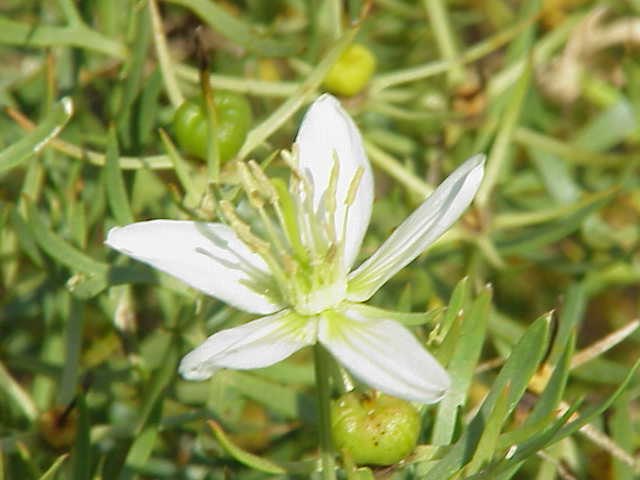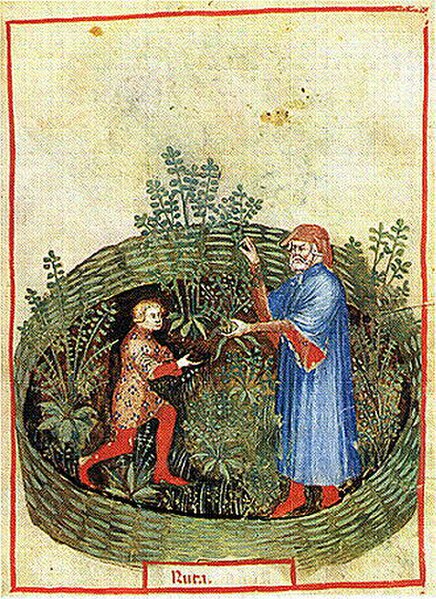Peganum harmala, commonly called wild rue, Syrian rue, African rue, esfand or espand, or harmel, is a perennial, herbaceous plant, with a woody underground rootstock, of the family Nitrariaceae, usually growing in saline soils in temperate desert and Mediterranean regions. Its common English-language name came about because of a resemblance to rue. Because eating it would sicken or kill livestock, it is considered a noxious weed in a number of countries. It has become an invasive species in some regions of the western United States. The plant is popular in Middle Eastern and north African folk medicine. The alkaloids contained in the plant, including the seeds, are monoamine oxidase inhibitors.
Peganum harmala
Peganum harmala – MHNT
Peganum harmala
The immature fruit of Peganum harmala have persistent styles.
Ruta graveolens, commonly known as rue, common rue or herb-of-grace, is a species of the genus Ruta grown as an ornamental plant and herb. It is native to the Balkan Peninsula. It is grown throughout the world in gardens, especially for its bluish leaves, and sometimes for its tolerance of hot and dry soil conditions. It is also cultivated as a culinary herb, and to a lesser extent as an insect repellent and incense.
Ruta graveolens
Foliage
Illustration in the Tacuinum Sanitatis
Capsule and seed - MHNT








